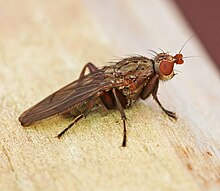
Delma is a genus of lizards in the family Pygopodidae. The genus Delma contains 22 valid described species, all of which are endemic to Australia.

The rose-throated tanager is a medium-sized songbird in the family Cardinalidae, the cardinals or cardinal grosbeaks. Endemic to the Yucatán Peninsula in Central America, it is found in Belize, Guatemala, and Mexico. The male has greyish plumage with a deep rose throat and crown, while the female is similar but for a yellow crown and throat.
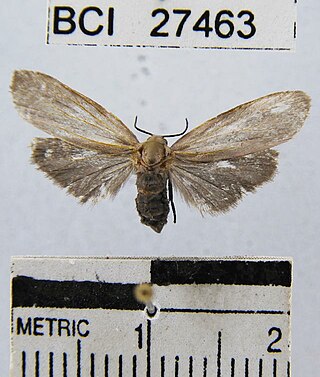
Euthyone is a genus of moths in the subfamily Arctiinae. The genus was erected by Watson, Fletcher and Nye in 1980.

Diarsia is a genus of moths of the family Noctuidae.

Pseudodaphnella is a genus of sea snails, marine gastropod mollusks in the family Raphitomidae.
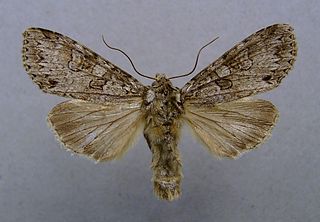
Polia nebulosa, the grey arches, is a moth of the family Noctuidae. The species was first described by Johann Siegfried Hufnagel in 1766. It is found in temperate Europe and Asia up to eastern Asia and Japan. It is not present in northernmost Fennoscandia and the southern parts of the Iberian Peninsula, Italy and Greece. In the Alps it is found at heights up to 1,600 meters.
Euthyone tincta is a moth of the subfamily Arctiinae first described by George Hampson in 1900. It is found in Bolivia.

Platnickina is a genus of comb-footed spiders that was first described by A. Ö. Koçak & M. Kemal in 2008.

Platnickina tincta is a tangle web spider species with Holarctic distribution. It is notably found in Lithuania.
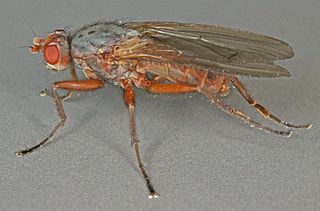
Scoliocentra villosa is a species of fly in the family Heleomyzidae. It is found in the Palearctic . This species was described in 1830 by Johann Wilhelm Meigen as Helomyza villosa [1].
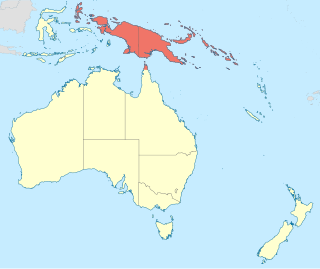
Rhinocypha tincta is a species of damselfly in the family Chlorocyphidae, commonly known as a Papuan jewel. It is a medium-sized damselfly with a short stout body, it is black with blue markings, and has long dark wings with pterostigma. It has been recorded from South-east Asia, New Guinea and the Solomon Islands in the Pacific, where it inhabits streams.
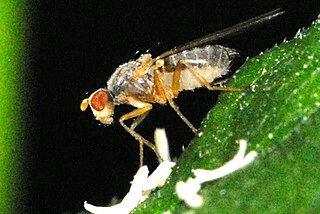
Heleomyzinae is a subfamily of flies in the family Heleomyzidae. There are about 17 genera and more than 400 described species in Heleomyzinae.

Heleomyzini is a tribe of flies in the family Heleomyzidae. There are about 10 genera and more than 180 described species in Heleomyzini.

Amphigerontia is a genus of common barklice in the family Psocidae. There are more than 30 described species in Amphigerontia.

Scoliocentra is a genus of flies in the family Heleomyzidae. There are at least 40 described species in Scoliocentra.
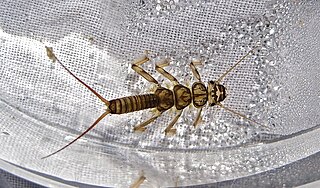
Claassenia is a genus of common stoneflies in the family Perlidae. There are about 12 described species in Claassenia.

Orthosia pacifica is a species of cutworm or dart moth in the family Noctuidae. It is found in western North America.

The excitable delma is a species of lizard in the Pygopodidae family endemic to Australia. The lizard gets its name from its active and jumpy defense mechanism. It will erratically jump multiple times in succession, each jump pivoting its body in a different direction. D. tincta is a slender, long legless lizard that through evolution lost its limbs. It is found throughout Australia in a variety of habitats, and spends most of its time hiding. Due to its nocturnal nature, it is rare to spot in the wild. This legless lizard is small to moderate in size, with a tail that is three to four times its body length. The typical size of the excitable delma is 250 – 300 mm. This lizard is an insectivore and feeds on insects it finds when travelling through grass, logs, surface soil, and loose rocks. Like all pygopodids, the excitable delma is oviparous and only lays two eggs per clutch.

Paramontana rufozonata, common name red-zoned turrid, is a species of sea snail, a marine gastropod mollusk in the family Raphitomidae.

Pseudodaphnella tincta is a species of sea snail, a marine gastropod mollusk in the family Raphitomidae.


















